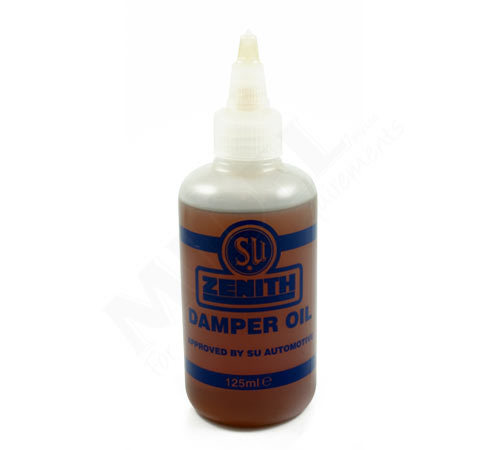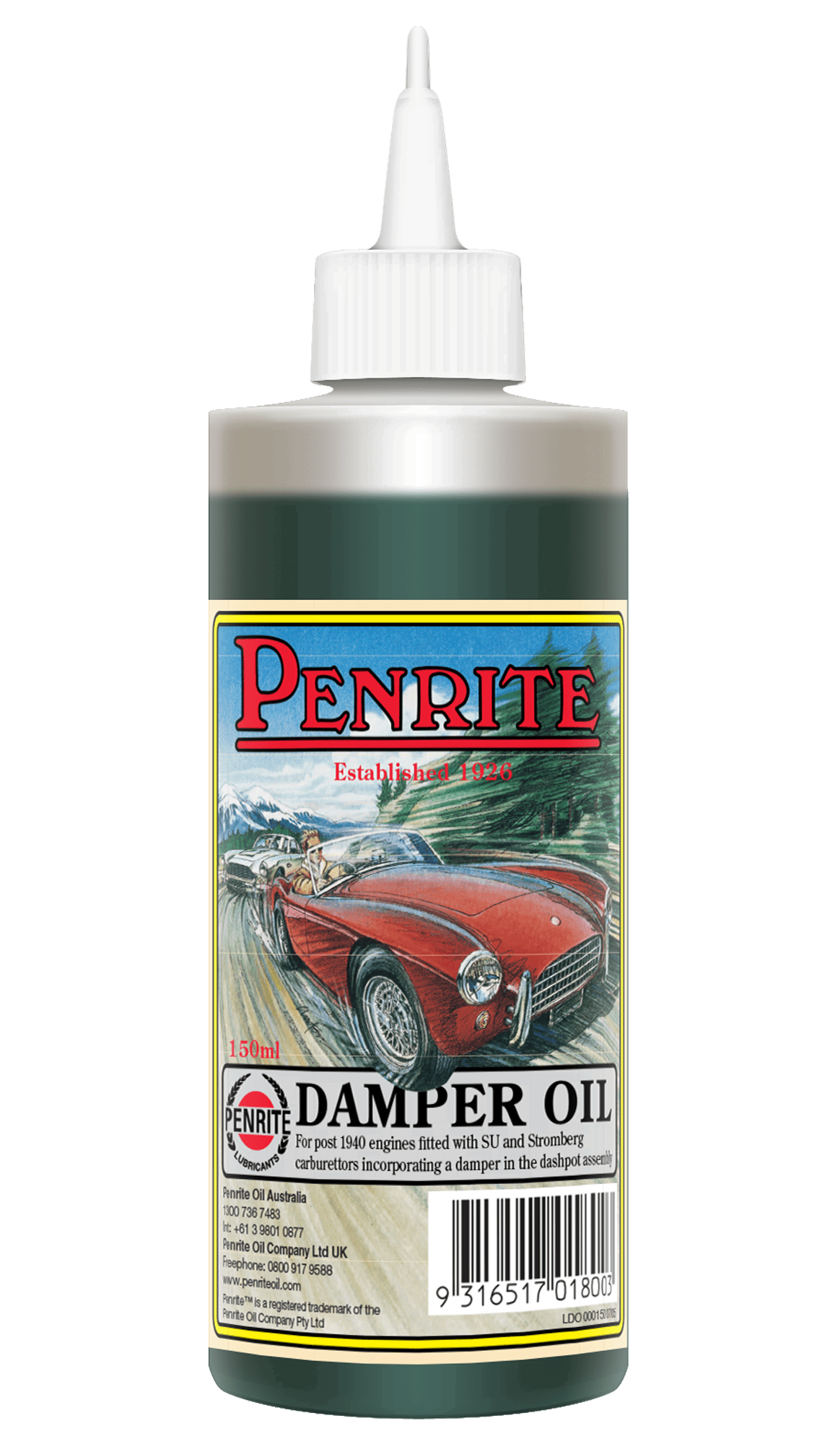The pots on both my SUs are both dry after a few days if left without running. Carbs were rebuilt by Joe Curto and the problem persists.
Any thoughts?
Also - what oil do you use in the pots?
20 wt is fine, 30 in really hot climates.
Would you use Synthetic or not?
Not sure it’d matter. Give it a shot!
I’ve used the same oil I put in the crankcase, usually 20w50.
No issue in over 45 years.
I put in Singer sewing machine oil - 20wt IIRC. Paul.
SU actually manufacture a damper oil. SAE-20
As do Penrite
That’s very unusual. Are you filling the tube nearly to the top? From memory on many SU’s there is a screw with a seal under it at the base of the oil reservoir. Is that tight?
Tim
Another alternative; 20 weight fork oil as used in motorcycles. Available at any motorcycle shop.
ANY 10 - 20 wt oil works just fine.
The only way for the oil to leak out is through the needles so make sure they are correct. Over the years the consensus is to use auto tranny fluid.
… which is about 20 wt oil…![]()
Since ethanol based fuels have a stochiometric ratio of just 14.1:1, the traditional 20W is too light with standard needles. Even 30W isn’t enough for my E-Type. OTH, 90W gear oil is too heavy. Yes, I’ve tried all that stuff. I’m going to have to switch to UE needles in the spring.
I used 20 wt in Tweety, and the same in my Rover, all using ethanol-laced fuels: works fine.
My altitude may be a factor in our differing experiences: what about the use of 20 wt makes you think it doesn’t work?
I KNOW the engine leans out on hard acceleration. Heavier damper oil fills out the flat spots. Not up for debate, I can measure it and feel it. I don’t see how altitude would mater, since the SU system matches flows by mass.
Well, in my experience, I felt no acceleration lags, nor any evidence of the cars being too lean on acceleration. That goes back 40 years, with other SU-carbed cars that I had experience with, and in the ethanol era.
I had the same “feeling”, plus very lean looking plugs, insulators pink with standard UM needles and 20w SU oil. Resolved partially with UE needles, better with 10-40 oil in dampers. Haven’t driven much, may try 20-50 oil.
If the plugs looked lean, it wasn’t as a result of lean acceleration, unless you did a number of ‘clean cuts’ under acceleration.
The SU design, with standard needles, springs, and dampers more or less guarantees a 14.7:1 A/F ratio by mass at any constant load, as long as the needle was properly matched to the engine. Ethanol gas is stochiometric at around 14:1, so if nothing else is done to a stock carb, the car will run slightly lean on modern pump gas. Cranking down the jet can richen the mixture along the entire curve, so for constant load, you may be able to keep the same needle if nothing was modified.
But during acceleration, piston motion is retarded by the damper, temporarily enriching the mixture. The problem is that the piston rise time affects the amount of enrichment during acceleration. If you know the weight and area of the piston, the rate of change in air flow rate, the strength of the spring, and some data regarding the damper, you can calculate the derivative of piston height with respect to time, which would back us into the designed-in transitional AF ratio.Whatever that number is, we know that the reduced O2 requirement of ethanol gas would require an even lower ratio.
I don’t know for sure how SU determined the optimum rise time. Whether they had a math model or simply determined spring strength and damper design by trial and error would be interesting to know. We do know that we need a slower piston rise if ethanol gas is used. The only practical method available to determine optimum rise time is trial and error. Fortunately, we have an simple tool for modifying dH/dT: changing damper oil viscosity. Easy to triangulate the best result by experiment.
In my case, the effect is more noticeable because I’m running headers, Accel air filter, and slightly hot cams. The modifications are what drive the need for a richer needle. With standard needles, I need about a 50W oil to make it move right, and this is too thick, so new needles are in order. But the use of maybe a 30W damper oil should improve even an unmodified engine on ethanol gas, without changing needles. So while I see plenty of products labeled “SU Carb Oil”, I’m not convinced that the old standard is still right. Try and see, that’s the only way.
Wow!
What I thought might be a simple inquiry has turned out to be a master class in carb set up. Like everything else when you ask a group of knowledgeable and passionate enthusiasts you wind up learning a lot.
This a great and proper forum
That falls apart a bit, above 13,000 feet, but WAY better than a standard carb!

